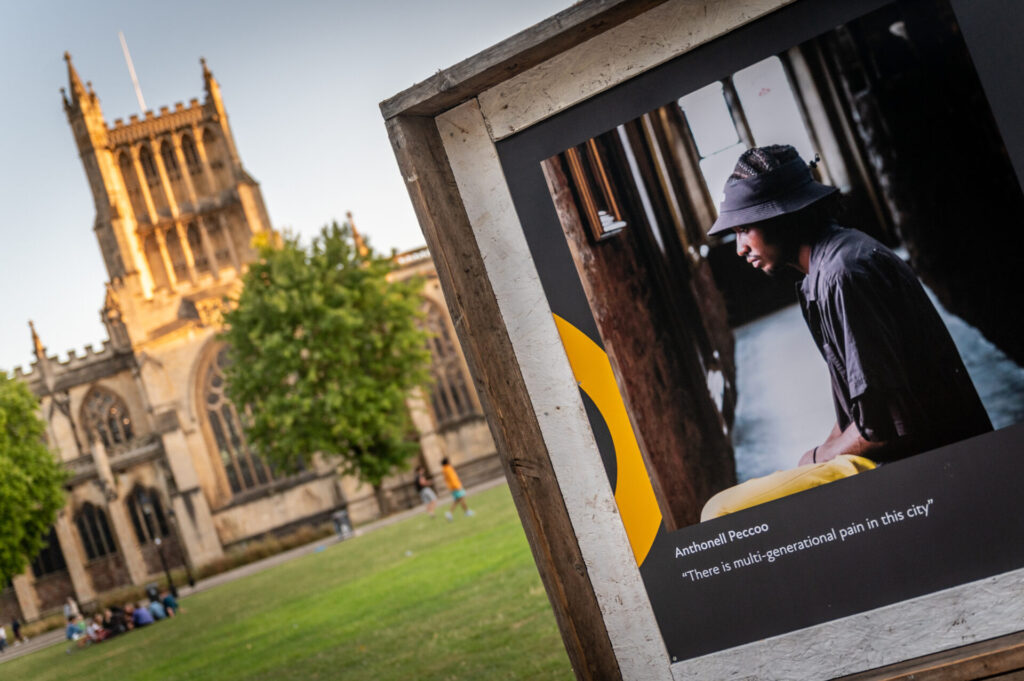Racial Justice

In the past four years, Bristol Cathedral, its Chapter (Trustees) and congregation have sought to address the legacy of transatlantic chattel enslavement in the life of the Cathedral through research, education and engagement with both the historic abomination of the trafficking and enslavement of African people and the lived reality of racial injustice in our city today.
What have we done so far?
- Invited a range of people of global majority heritage to preach in the Cathedral
- Carried out research and consultation resulting in the exhibition All God’s Children (see below for more information)
- Worked with the descendants of John Isaac, an enslaved African man, to install a monument to him and those who suffered alongside him.
- Offered learning opportunities to the congregation including a study day with Azariah France Williams, author of Ghost Ship, showing the film After the Flood, and signposting the Blacklight course.
- Established an annual conference, The Beloved Community, to explore and celebrate diversity within the church.
- Piloted a series of school workshops around All God’s Children and evaluated them in partnership with the University of the West of England.
- Appointed Professor Robert Beckford and Edson Burton to Chair our arts commissioning groups
Racial Justice Strategy
On the 9th of October 2024, the Cathedral launched its first Racial Justice Strategy with the aim of taking the next step in addressing historic issues of racial injustice in the life of Bristol Cathedral and to fold the work of racial justice into our wider vision and strategy.
In adopting this strategy we aspire to:
- Undertake actions that express a commitment to reparational justice by working with partners to address inequality in our city, in particular in addressing the injustice experienced by young people of African and African Caribbean heritage.
- Address the legacy of transatlantic chattel enslavement as it is reflected in the fabric of Bristol Cathedral by telling the truth about the past.
- Express our repentance for the institutional sin which has led to the suffering and trauma of our sisters and brothers both past and present.
- Work for reconciliation and partnership so that all people, but specifically those impacted by the legacy of transatlantic chattel enslavement, experience welcome and can participate in and influence the life of Bristol Cathedral in all its dimensions.
You can download a copy of the Racial Justice Strategy below.
A note on language:
The language in the Racial Justice Strategy has been carefully chosen on the advice of the Cathedral Racial Justice Advisory Group. We recognise that many of terms preferred here are contentious and that not everyone will favour the choices made. We also acknowledge that the use of language is constantly changing and aim to remain sensitive to that.
All God’s Children
In the summer of 2022 we opened a brand new exhibition exploring the Cathedral’s connection with the trade of enslaved people.
For the first six months of its display visitors were invited to join the conversation about what we should do next by filling in a survey. The results of the survey were independently analysed and you can download the results of the survey are available below.
In order to create All God’s Children, we have researched the people who were buried or memorialised here between 1670 and 1900, when the Cathedral’s ties to slavery were strongest. It encompasses Bristol’s peak as a slave-trading port in 1740; the outlawing of the slave trade in 1807; and the final abolition of slavery in 1834.